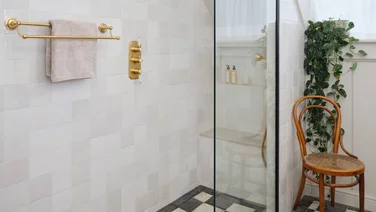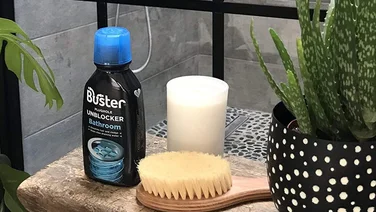To help us provide you with free impartial advice, we may earn a commission if you buy through links on our site. Learn more
- What is the Disabled Facilities Grant?
- Who is eligible for a Disabled Facilities Grant?
- What can you use the Disabled Facilities Grant for?
- What’s a Disabled Facilities Grant worth?
- Do you have to repay the Disabled Facilities Grant?
- How to apply for a Disabled Facilities Grant
- Are there any alternatives to the Disabled Facilities Grant if you’re not eligible?

If you or someone you live with struggles with mobility, you may have thought about adapting some of your home’s facilities to make them better suited to their needs. This is where a Disabled Facilities Grant (DFG) could help.
In order to be eligible for funding, your council must agree that the work is necessary and appropriate, and that it meets the needs of the person with the disability.
The council must also agree, when taking into account the condition and age of the home, that it’s reasonable for the work to be completed.
Adapting your bathroom to include a walk-in bathtub that makes getting in and out of the bath easier is just one of the modifications that could be covered by the DFG.
What is the Disabled Facilities Grant?
The DFG is a means-tested grant for people aged 18 and over who live in England, Wales or Northern Ireland. What this means is the amount you could be eligible for depends on your household income and savings.
For example, if you live alone or with a spouse or partner, your combined income and savings will be taken into account. Typically the first £6,000 of household savings are exempt, but each local authority has its own policy for means-testing.
As a general rule, disabled children and minors under 18 are able to get a grant without their parents’ income being taken into account.
It’s also worth noting that the DFG isn’t available in Scotland. However, there are similar equipment and adaptation support services.
The DFG is available regardless of whether you rent or own your home. It’s also available for those living in a caravan or houseboat.
It’s also important to note that applying for and receiving this grant won’t affect any other benefits you may be receiving from your local authority.
READ NEXT: Best walk-in bathtubs
Who is eligible for a Disabled Facilities Grant?
The government classifies disability as a physical, mental or hidden illness. Eligibility includes (but isn’t limited to) people with:
- physical disabilities
- age-related needs
- a progressive condition, such as motor neurone disease
- a cognitive impairment, such as dementia
- a terminal illness
- autism
- a mental health condition
- a learning disability
You must be making the changes to your home based on your disability, instead of simply altering certain parts of it for aesthetic reasons or to increase its resale value.
The recipient of the DFG must also intend to live in the property during the grant period. This is usually for around five years, but this period can be shorter depending on health and circumstances.
What can you use the Disabled Facilities Grant for?
As well as adding a walk-in bathtub to your bathroom, a DFG can also be used to widen doors and install ramps or grab rails, improve access to your garden, adapt heating or lighting controls to make them easier to use, or even build an extension – such as a downstairs bedroom for those who find it difficult to walk up and down stairs – as well as to install a stairlift.The grant is also usually quite flexible when it comes to bathroom redesigns. You could opt for a walk-in bathtub, a walk-in shower or a complete wet room. This all depends on what the grant recipient prefers and what’s most suitable for their needs.
What’s a Disabled Facilities Grant worth?
In England you could receive up to £30,000, but this amount varies elsewhere. In Northern Ireland it’s slightly less at up to £25,000, and in Wales it’s slightly more, at up to £36,000. The government states that some councils may give you more money than others.
When your grant is approved, you’ll either be paid in instalments, as the work progresses, or in full when the work is completed.
Your local council may decide to pay your contractor or builder directly, while in some circumstances, they will provide you with a cheque to pass onto them. Whichever payment system is adopted will be stipulated when your application is approved.
READ NEXT: Best bath towels
Do you have to repay the Disabled Facilities Grant?
In the majority of situations, you normally don’t have to repay a DFG. There are certain circumstances, such as if you sell your home or move property for non-medical reasons within five years of the work being completed, where you may need to partially repay the grant. However, these conditions will all be explained at the approval stage.
How to apply for a Disabled Facilities Grant
When you are ready to apply for a DFG, there are several steps to take as part of the application process.

1. Get an assessment
First, you will need an assessment of your home to see which changes may be necessary. Your council will typically send an occupational therapist or trained assessor to do this.
There could be a long waiting list for assessments, so you may want to contact your council to check if you can use a private occupational therapist and then include the cost of this in your grant application. It’s always worth double checking first before you part with any money.
2. Complete a DFG application form
Once you’ve had your assessment, you’ll then need to complete a DFG application form from your local council. The council normally needs two written estimates for the cost of the work.
If you require any help with your application, the government funds an organisation called Foundations which can help.
3. Provide any relevant documentation
You must provide proof that a disabled person lives at the property and that they are either a tenant or owner. If renting, written proof from the landlord must be included. The same can be said for those who live in a co-owned property. All parties must confirm that they are happy to go ahead with the relevant alterations in writing.
4. Apply for planning permission if necessary
If you plan on undertaking a substantial renovation such as building an extension, or you live in a listed building or conservation area, you’ll need planning permission or to have building regulations approval beforehand. Certain flats or maisonettes may also have specific rules about renovations.
If the council asks you to employ a qualified architect or surveyor to plan and oversee this work and your grant is approved, you can use the grant towards the cost of their fees.
However, if you only plan on installing a walk-in bathtub or wet room in your existing bathroom, you won’t require planning permission. Whether or not planning permission is required depends on the degree of the proposed changes.
5. Submit your application
Once you submit your application, your council must give you a decision within six months. This starts from the date of your formal application.
Don’t get started on any renovation work before your local council has approved it, otherwise it may not be covered by the grant and could leave you out of pocket.
Are there any alternatives to the Disabled Facilities Grant if you’re not eligible?
You can appeal directly to your council if you’re unhappy with its decision. Following this, you can also complain to the Local Government Ombudsman, who will decide whether or not to investigate your complaint.
You may also be eligible for other benefits, such as a Personal Independence Payment (PIP) or Attendance Allowance, depending on your age. Neither of these benefits are means-tested, so these may be more suitable if your household income or savings are especially high.
If the recommended adaptations to your home cost under £1,000, these can be provided and fitted for free if you live in England. If you live in Northern Ireland or Scotland, your local authority might charge for minor adaptations. It’s the same in Wales, but any charges must be “reasonable” and take into consideration your ability to pay them.






